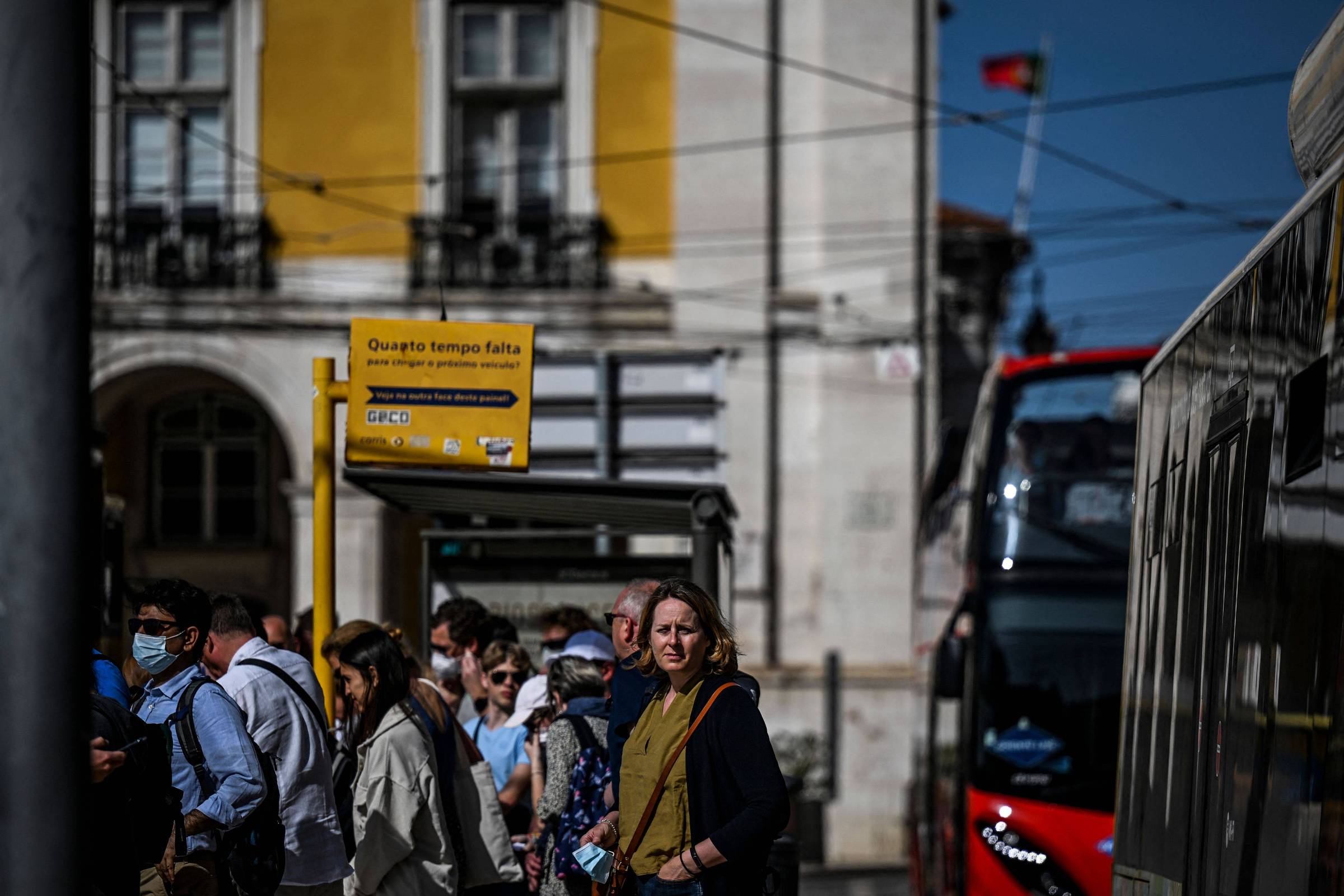“Brazilian citizenship” was the main reason given in discrimination complaints filed in Portugal in 2021, accounting for 26.7% of the total 408 complaints received by the Commission for Equality and Against Racial Discrimination (CICDR).
While overall, the number of complaints of discrimination in the country decreased by 37.7% compared to 2020 (655) and by 6.4% compared to 2019 (436), reports specifically against Brazilians increased. In 2021, 109 complaints were received for this reason, and in 2020 – 96; growth by 13.5%.
The jump is especially pronounced compared to 2017, when there were only 17 registrations. However, in the same year, the total number of discrimination complaints was also much lower, at 179 complaints. The data is part of the country’s latest Annual Report on the State of Racial and Ethnic Equality and Non-Discrimination, released quietly by the Anti-Discrimination Commission on Tuesday (9).
According to the document, the expressions “Gypsy nationality” with 67 complaints (16.4%) and “Black/black/black/black race” with 65 complaints (15.9%) are expressed “with significantly lower values”.
The more general expression “foreigners/foreigners/immigrants in general” comes in fourth place with 18 complaints (4.4% of the total) “corresponding to cases in which the victims felt they were discriminated against for being foreigners, immigrants or non-migrants”. who are Portuguese citizens. , we are not talking about a crime against a specific nationality.
In 2021, legally residing Brazilians made up about 30% of the nearly 700,000 foreigners living in the country, according to data from the SEF (Service for Foreigners and Borders), in 2021 — partial data released by the agency on Tuesday showed that the country’s community continued to grow. .
In Portugal, depending on the specifics of the case, episodes of ethnic and racial discrimination can be classified as a crime or a so-called misdemeanor, a lesser crime. This is how most registered offenders are classified, resulting in lighter penalties. These episodes are analyzed by the CICDR, which has autonomy and decision-making authority.
“CICDR has the power to make decisions and impose fines [multas] and additional sanctions in the framework of administrative offenses. But such decisions can always be challenged in court. Sometimes yes, sometimes no,” explains Pedro Barosa, Partner at Abreu Advogados. In 2021, the Commission issued only two sentences, one fine and one warning (a kind of public warning).
A survey carried out by the Combat project of the Center for Social Studies (CES) of the University of Coimbra analyzed data on discrimination from 2006 to 2016 and showed that about 80% of cases initiated by the Commission for Equality and Against Racial Discrimination end up being shelved. A guilty verdict was handed down in 7.5% of cases. However, in appeals overturning or contesting these decisions, convictions are reduced to 5.8%.
According to José Falcao, leader of the NGO SOS Racismo, several convictions in Portugal mean that, in practice, crimes of racism in the country go unpunished. “The law does absolutely nothing to combat racial discrimination. This law in its current form is useless,” he says, citing the case of MP Andre Ventura, leader of the far-right Chega party.
CICDR fined the parliamentarian 3,770 euros (19,700 reais) for comments that were deemed discriminatory against Roma ethnicity on a Facebook page, but Ventura filed an appeal and the court acquitted him.
According to Falcao, the difficulty in exposing cases of discrimination often begins at the police stations, when the police still routinely dissuade complainants.
In an interview with Sheet In July, Parliamentary Affairs Minister Ana Catarina Méndez said the Portuguese government was investigating complaints that already pointed to an increase in discrimination, but stressed that the increase was also due to migrants’ greater awareness of the issue. which leads to more complaints.
Psychologist Cynthia de Paula, president of Casa do Brasil in Lisbon, a non-governmental organization that provides assistance to the Brazilian community, also believes that immigrants are becoming more attentive. We have received more messages [de discriminação]but I think a larger denunciation movement has also been created,” he said.
In this sense, in addition to increasing racial debate in some parts, the very characteristics of the new wave of Brazilian migration to Portugal may contribute to a greater willingness to openly discuss complaints of discrimination. This group, which is more active and includes many students, professionals and entrepreneurs, has formed groups and associations and used social media to raise awareness of the issue.
This topic was especially discussed in the country after the great resonance of racist insults made by a Portuguese woman. against the children of Brazilian actors Giovanna Eubank and Bruno Gallasso. The case took place on July 30 in a restaurant in Costa da Caparica, near Lisbon. The woman was arrested but later released by the police.
The couple’s press service states that the aggressor “asked them to leave the restaurant and return to Africa, among other absurdities pronounced to the children as“ dirty blacks ”. The actors wrote a statement to the police. The Ministry of Industry and Trade confirmed that they had launched an investigation into this case.















